How does a garden grow? Through you!
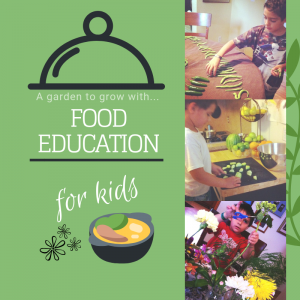
As an assistant teacher at a Montessori school I once asked a group of children how pizza was made. One child confidently exclaimed, “A box!” To be honest, while growing up I had no idea that my hamburger patty was actually a cow. Somewhere, among the isles of processed foods, we’ve disconnected our self from the very thing that sustains us and gives us life- our food. We’ve not only forgotten where our food comes from, but we now assemble it instead of preparing it.
By helping children cultivate a connection to our food early on through garden programs that are integrated into school curriculum, we create a whole child approach to education which promotes overall health and wellness. With the abundant environmental problems and health issues facing local and global communities (like diabetes, obesity, malnutrition and nature deficit disorder, to name a few), now more than ever, we need an onsite school garden to not only pique our curiosity but to foster intergenerational learning. School gardens facilitate a partnership with teachers, parents and community members. These hands-on, teachable moments aren’t limited to the garden but reach beyond into kitchen and the lunchroom.
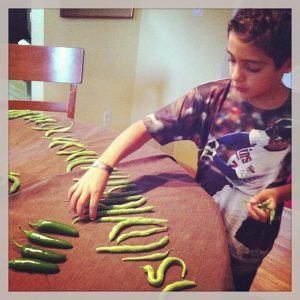
This of course isn’t to say that you still can’t or shouldn’t have a garden at home. One thing I learned working in the classroom was that if you grow it, odds are, the kids are going to eat it. As my children’s first teacher, I instituted this at home. I credit it to why my kids have adventurous palates and have always enjoyed a plethora of vegetables. However, not every child has access at home to such opportunities. To ensure that every child shares in the magic of the garden, an onsite school garden is ideal.
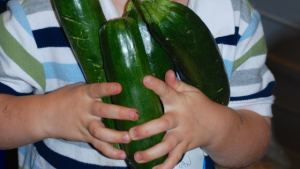

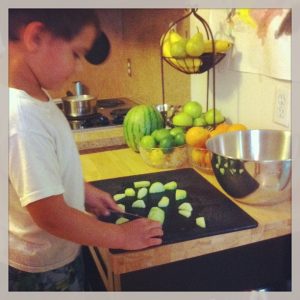
With so many online resources available, those that would like to start a garden at a school won’t be re-inventing the wheel, but rather connecting the dots. While we all can’t be Alice Waters, we sure can be inspired by her! As a matter of fact, yesterday I attended a webinar presented by Lilia Smelkova, Food Day Campaign Manager at the Center for Science in the Public Interest. The event was co-sponsored by edWeb.net, the Edible Schoolyard Project, the National Farm to School Network, and Life Lab. This webinar focused on ways to inform people about the various resources available, ways to get schools involved and connected with the national Get Food Education in Every School initiative.
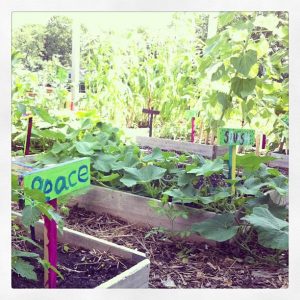
Every October 24 marks Food Day events all over the country. How is your school, organization or community participating? The Food Day initiative is a call for Americans to come together by celebrating and enjoying real food in addition to being catalysts for improved food policies.
The great thing about the programs that are already in place, like the Edible Schoolyard Berkley, is that it shows us all first hand that these programs really are applicable anywhere. For more ideas on how you can get involved in Food Day, online networks, resources for school gardens and professional development opportunities, visit these websites:
- Food Day. “Food Day is a nationwide celebration and a movement for healthy,
affordable, and sustainable food.” - National Farm to School Network. “Farm to school enriches the connection communities have with fresh, healthy food and local food producers by changing food purchasing and education practices at schools and preschools.”
- Edible Schoolyard Network. “…connects educators around the world to build and a share a K-12 edible education curriculum.”
- Life Lab. “Bring learning to life in the garden!”
- California Foundation for Agriculture in the Classroom. “Our vision is an appreciation of agriculture by all.”
- Institute for Agriculture and Trade Policy. “IATP works locally and globally at the intersection of policy and practice to ensure fair and sustainable food, farm and trade systems.”
- EdWeb. “We help educators share ideas to improve teaching and learning.”
Thank you to Lilia Smelkova, Food Day Campaign Manager at the Center for Science in the Public Interest, edWeb.net, the Edible Schoolyard Project, the National Farm to School Network, and Life Lab for the informative webinar on Food Day held on July 16, 2014.
